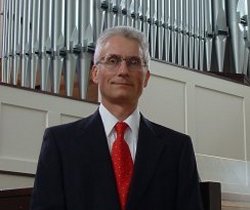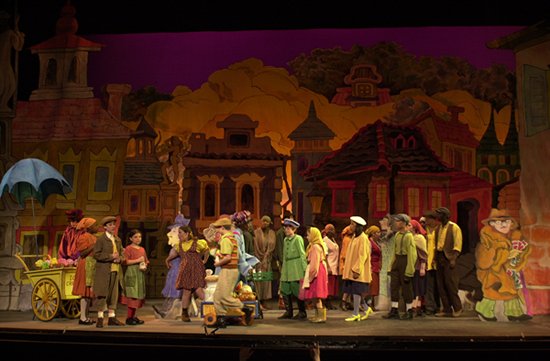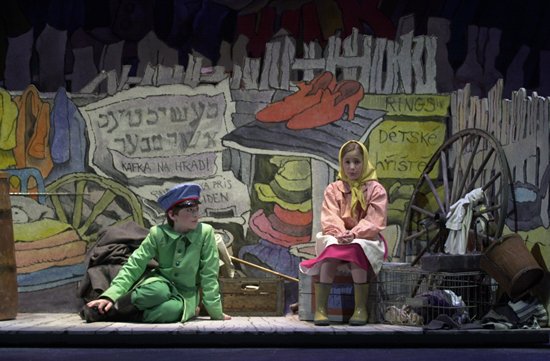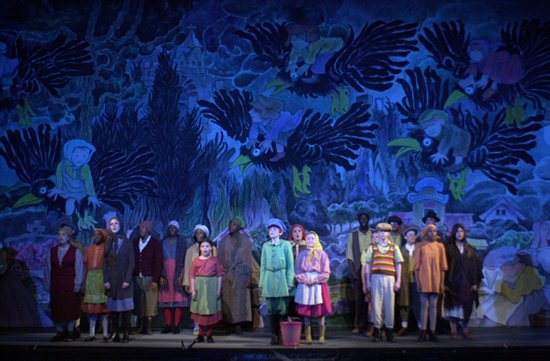
| | Organist | Accordionist | Composer | Conductor | Author | Educator |

 |
Henry Doktorski
|
 |
November 2009: Henry Doktorski performed on accordion with the Pittsburgh Opera Theater and Pittsburgh Youth Symphony in six performances of Brundibár, the children's opera by Hans Kraša at the CAPA Theater in Pittsburgh, Pennsylvania. 
Krása’s charming work, scored for flute, clarinet, trumpet, strings, piano, guitar, accordion, percussion, and vocal solists with chorus, is about two children who are determined to get milk for their sick mother. With the help of townspeople and animal friends, they stand up to the town bully—Brundibár—and prevail, proclaiming as they go that you need only “be brave and bullies will behave!” The accordion is used to portray a "magic organ grinder."
The Czech composer, Hans Krása (1899-1944), in collaboration with Adolf Hoffmeister, wrote Brundibár for a government competition in 1938. The competition was cancelled due to political turmoil, but rehearsals for the opera began in Prague in 1941 at an orphanage for Jewish children. By the time of the first performance in winter 1942, Krása had been arrested and sent to the Theresienstadt (also called Terezín) ghetto, where the Nazis housed many of the educated Jews and cultural elite of Czechoslovakia, Germany, and Austria. In 1943, nearly all of the children at the Prague orphanage would follow him to the concentration camp. Hoffmeister, who wrote the opera’s libretto, managed to escape Prague before the Nazis could arrest him.
In the camp, Krása reconstructed the opera, based on memory and a partial piano score he rescued before his deportation. He adapted the opera to the resources in the camp, and the original scenic designer, Frantisek Zelenka, reprised his role. On 23 September 1943, Brundibár premiered in Theresienstadt. Zelenka directed the production, with choreography by Camilla Rosenbaum. Over the course of the year, Brundibár was performed 55 times. Brundibár was performed with rotating casts of inmates at Terezín. Most of the participants in the productions, including Krása, were sent to their deaths at Auschwitz.
Brundibár was filmed for a Nazi propaganda film later that same year. Footage from the film was used in the documentary Voices of the Children, directed by Terezín survivor Zuzana Justman, who sang in the original chorus. Ela Weissberger, another survivor who played the part of the cat, appears in the documentary. The film won an Emmy in 1999.
The Pittsburgh Opera Theater production of Brundibár is directed by Jonathan Eaton, with musical direction by Stephen Nealy. Performances are: (1) for Pittsburgh school children on Thursday, November 5 at 10 and 11 a.m., and (2) for the general public on Friday, November 6 at 7:30 p.m.; Saturday, November 7 at 6:00 p.m. & 7:30 p.m.; and Sunday, November 8 at 2:30 p.m. The CAPA Theater is loacted at 111 Ninth Street, Pittsburgh, Pennsylvania. For tickets, contact the Box Office at Theater Square at 412-456-6666. A must-see for all the family.


|